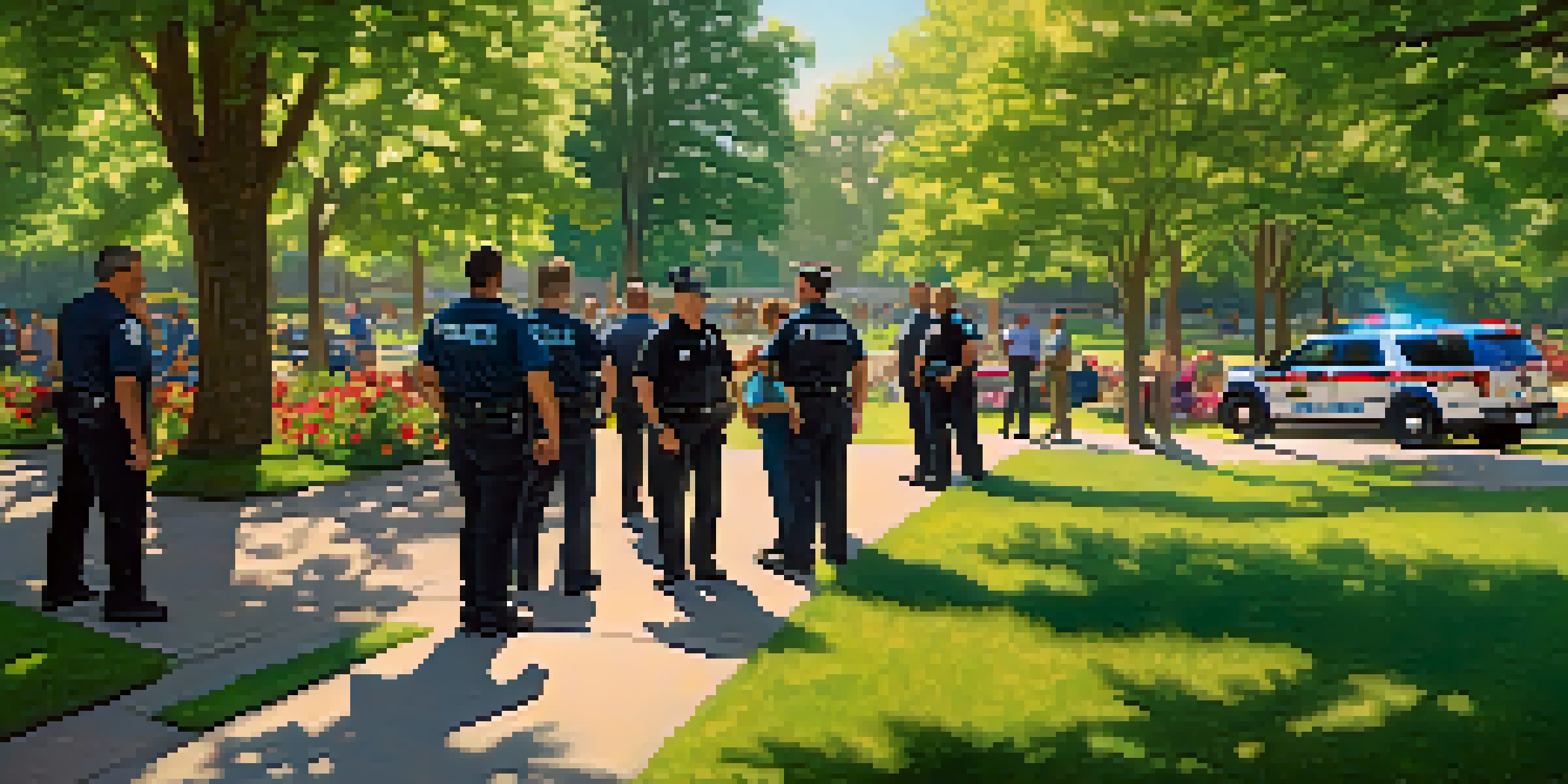Marijuana and Mental Health: Impacts on First Responders

Understanding First Responders’ Mental Health Challenges
First responders, including police officers, firefighters, and paramedics, face intense job-related stress. They encounter traumatic events regularly, which can lead to mental health issues like PTSD, anxiety, and depression. The nature of their work often makes them reluctant to seek help, fearing stigma or jeopardizing their careers.
The greatest weapon against stress is our ability to choose one thought over another.
The pressure to maintain composure and provide support to others can leave first responders feeling isolated. This isolation can exacerbate mental health issues, creating a dangerous cycle of distress. In this context, understanding the available coping mechanisms becomes crucial.
Recognizing the mental health challenges faced by these professionals is the first step toward addressing their needs. By fostering an open dialogue about mental health, we can encourage first responders to seek the support they need without fear of judgment.
The Role of Marijuana in Coping Mechanisms
In recent years, marijuana has emerged as a popular choice for coping with stress and trauma. Many first responders turn to cannabis for its potential calming effects, especially after a tough day on the job. This shift reflects a broader societal change towards acceptance of marijuana as a therapeutic aid.

While some argue that marijuana can help alleviate symptoms of anxiety and PTSD, the reality is more nuanced. The effects of marijuana can vary significantly from person to person, with some experiencing relief while others may find it increases their anxiety or leads to dependency.
Mental Health Challenges for Responders
First responders face significant mental health issues, such as PTSD and anxiety, often exacerbated by job-related stress and isolation.
It's important for first responders to weigh the pros and cons of using marijuana as a coping mechanism. Consulting with mental health professionals can provide personalized guidance on whether cannabis is a suitable option for their specific needs.
Potential Benefits of Marijuana for Mental Health
Research suggests that certain compounds in marijuana, particularly CBD, may have therapeutic benefits for mental health. For first responders grappling with PTSD or anxiety, these compounds might offer a way to manage their symptoms without the side effects associated with traditional medications.
It's not the load that breaks you down, it's the way you carry it.
Some studies have indicated that marijuana can promote relaxation and improve sleep quality, both of which are crucial for mental health recovery. By enhancing sleep and reducing anxiety, marijuana could provide first responders with the respite they need to cope with the stresses of their jobs.
However, it’s essential to remember that these benefits can vary widely among individuals. What works for one person may not work for another, highlighting the need for personalized approaches to mental health treatment.
Risks and Downsides of Marijuana Use
Despite its potential benefits, marijuana use is not without risks, especially for first responders. Regular use can lead to dependency, which may complicate existing mental health issues. Moreover, some individuals might experience increased anxiety or paranoia when using marijuana, which could worsen their condition.
Additionally, the legal status of marijuana can create complications for first responders. Many organizations have strict policies against drug use, and testing positive for marijuana could lead to disciplinary actions or job loss, further discouraging those who might benefit from its use.
Marijuana's Role in Coping Strategies
Many first responders are turning to marijuana as a potential coping mechanism for stress and trauma, though its effects can vary widely among individuals.
It's crucial for first responders to consider these risks carefully. A balanced understanding of both the benefits and potential downsides can lead to more informed decisions about using marijuana as a coping strategy.
Seeking Professional Guidance on Cannabis Use
For first responders contemplating marijuana use, consulting with mental health professionals is vital. A qualified therapist or counselor can help navigate the complexities of cannabis use and its impacts on mental health. They can provide insights into whether marijuana is a suitable option based on individual circumstances.
Furthermore, professionals can help first responders explore alternative therapies and coping strategies. This holistic approach ensures that individuals find the best methods for managing their mental health without solely relying on marijuana.
Building a strong support network and accessing professional guidance can empower first responders to make informed choices about their mental health and well-being.
The Importance of Peer Support among First Responders
Peer support plays a vital role in the mental health of first responders. Sharing experiences and coping strategies with colleagues can create a sense of community and understanding. This bond can help combat the isolation many first responders feel and encourage healthier coping mechanisms.
Programs that promote peer support can provide safe spaces for first responders to discuss their challenges without fear of judgment or repercussion. These initiatives can foster an environment where seeking help is normalized, reducing stigma around mental health issues.
Importance of Professional Guidance
Consulting with mental health professionals is crucial for first responders considering marijuana use, as it helps navigate the complexities and risks involved.
By prioritizing peer support, first responders can build resilience and develop healthier coping strategies, whether that includes discussing marijuana use or exploring other mental health resources.
Moving Forward: Balancing Marijuana Use and Mental Health
As society continues to evolve in its understanding of marijuana, first responders must navigate their unique challenges. Balancing the potential benefits of marijuana with the risks is essential for their mental health. This journey requires self-awareness and a willingness to seek help when needed.
Integrating marijuana into a broader mental health strategy may work for some, but it’s not a one-size-fits-all solution. Each first responder's experience is unique, and their paths to mental wellness will differ accordingly.

Ultimately, creating an environment that encourages open conversations about mental health and marijuana can lead to healthier outcomes for first responders. By fostering understanding, we can help these heroes find the support they need.